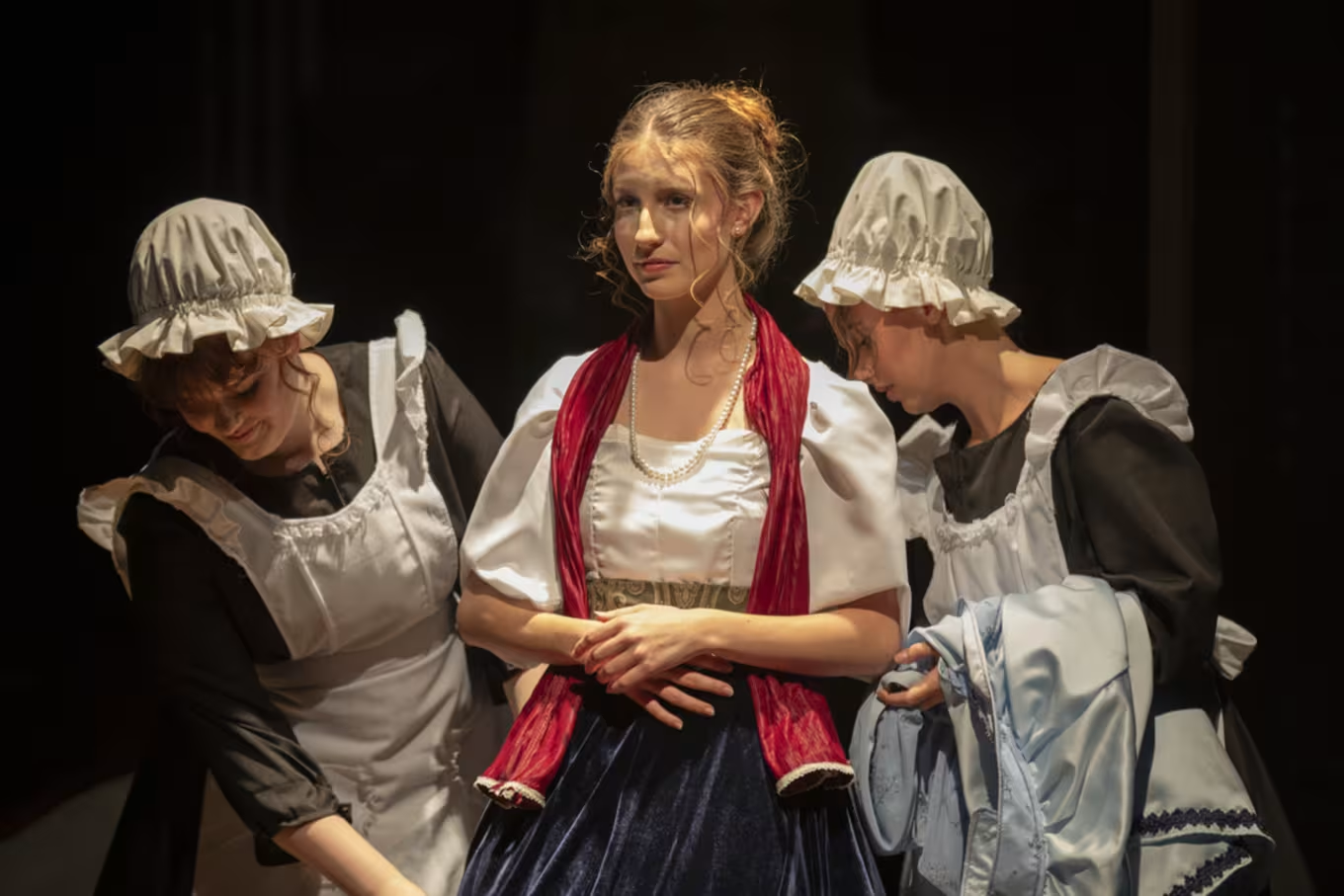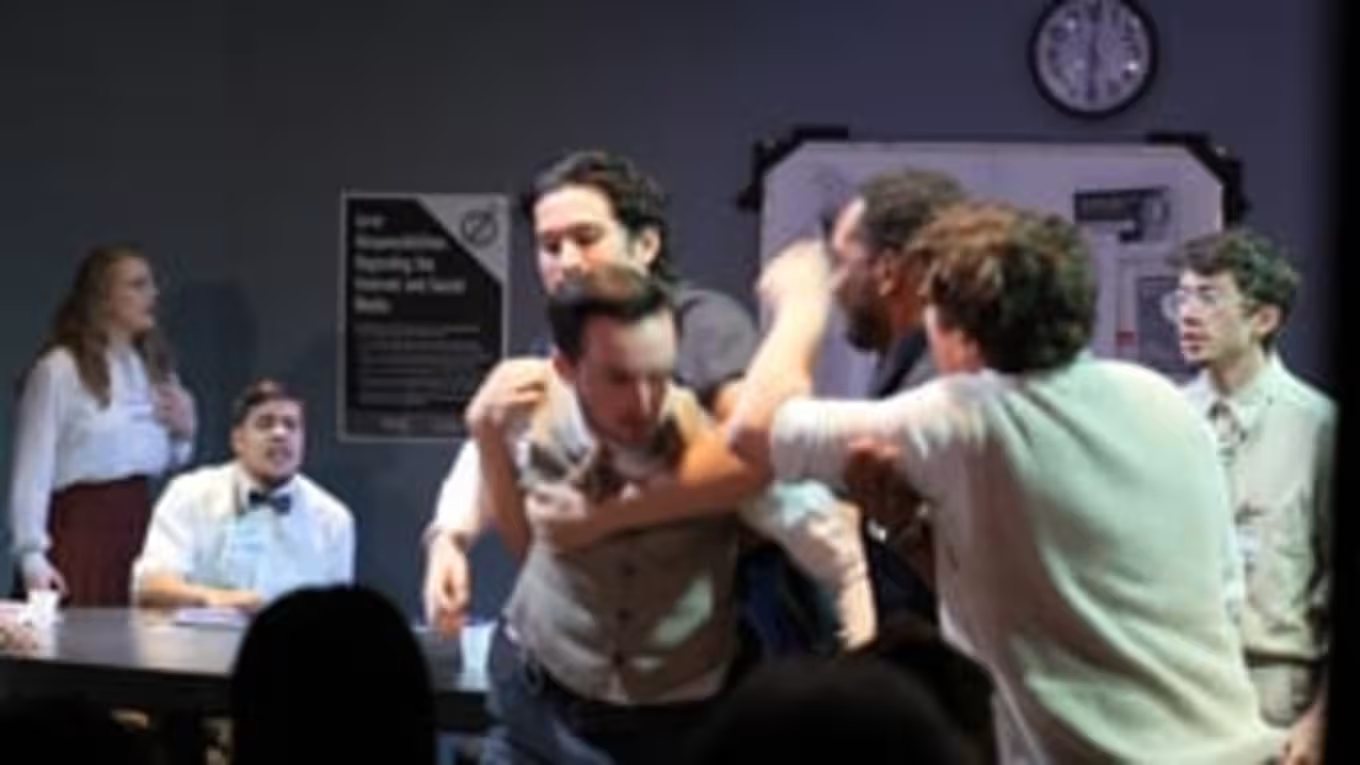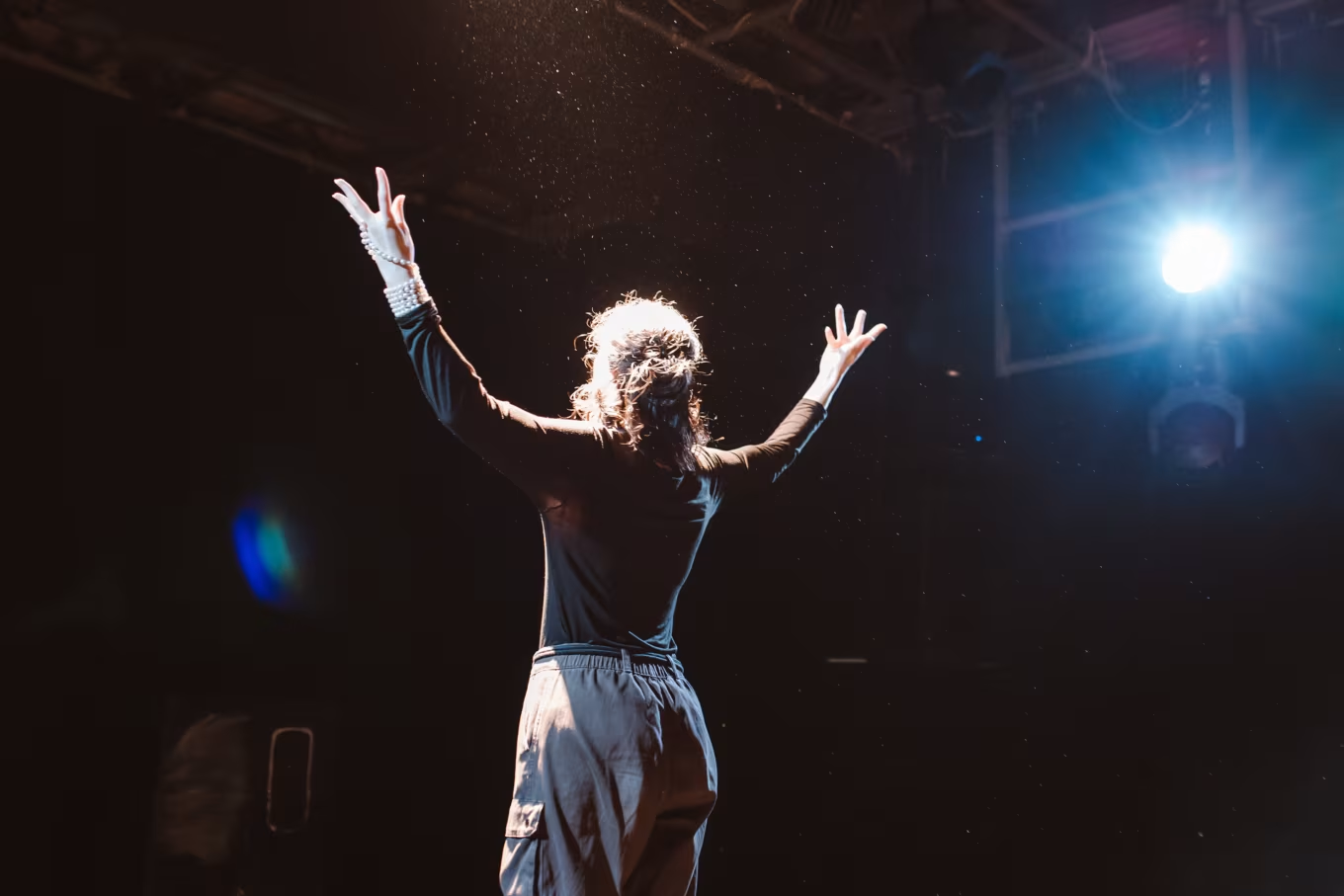We're here to help.

Share your passion for live production with the next generation as an educator. This Bachelor of Arts in Theatre for Secondary Education degree can teach you to focus on the skills necessary to pursue a career in teaching theatre. This theatre education degree includes a diverse mix of core theatre coursework — such as playwriting, stagecraft and theatrical design — as well as classroom management and other secondary education coursework for teaching grades 6 through 12.
Offered by the College of Arts and Media at Grand Canyon University, this theatre education program may include a student teaching experience and can lead to initial teacher licensure. If you are seeking teacher licensure, you will be taught the pedology methods necessary to work toward acquiring a teaching certificate by passing the state exam for teaching licensure in the state in which you plan to teach and complete practical field experience.

In addition to classroom studies, students in this program may participate in performances at GCU’s Ethington Theatre in various capacities, including onstage and offstage disciplines, to experience the creative process from beginning to end: rehearsals, set up, live performances and more.

This theatre education program is designed to help prepare you to become a theatre practitioner and drama or theatre educator at the secondary level. Along with building a solid foundation in the arts and teaching, it can provide theatre education majors the opportunity to hone important skills such as critical thinking, communication and ethical decision making.
This BA theatre program was designed using National Association of Schools of Theatre (NAST) standards. All courses align directly with Interstate New Teacher Assessment and Support Consortium (INTASC) principles.
GCU’s theatre education degree covers a range of core topics that can be essential for aspiring theatre educators.
These topics include:
Acting, theatre participation and stage direction
Classroom engagement and management
Data-driven instructional methods for middle and secondary teachers
Early adolescent and adolescent psychology
Fundamentals of theatrical design
Playwriting, stage lighting and more
Theatre history: Greek to Restoration and 18th Century to present
Theatre methods and assessment in the secondary school
Dive into the world of theatre at GCU and witness the talent and dedication of our student actors in this captivating production of “12 Angry Jurors.” This compelling drama is brought to life by student performers, offering an engaging glimpse into theatre degrees in the College of Arts and Media.

Upon completing this Bachelor of Arts in Theatre for Secondary Education program, graduates may be prepared to take and pass their teacher’s licensing exam. This may allow you to pursue roles such as a high school theatre educator or a high school drama teacher. The BA theatre degree can also teach you a diverse skillset that can be beneficial across many positions within education, nonprofit organizations and beyond.
This section may help theatre in education majors address common or frequently asked questions regarding this program. We hope this can serve as a valuable resource for those interested in this specialized drama education degree.
A theatre degree and a theatre for secondary education degree differ in their focus and intended outcomes. A theatre degree is a broader program that may emphasize the study and practice of theatre arts. Theatre education majors may cover various aspects of theatre, including acting, directing, stagecraft, design, playwriting, theatre history and theory. A theatre for secondary education degree can prepare you to pursue opportunities as a theatre teacher at the secondary school level (usually grades 6-12). It typically combines theatre coursework with education courses and teaching practicum experiences.
Theatre can hold significant importance in education by offering developmental benefits and important pathways for careers. One featured study shows theatre’s positive impact on student success related to theatre education in the following ways:1
Overall, theatre in education can nurture well-rounded individuals by fostering creativity, collaboration, self-expression, critical thinking and self-confidence.
The duties of a theatre teacher may encompass various responsibilities within an educational setting. These may include:2
Please note, these duties may vary depending on the degree you earned, experience you have and company you work for.

Enroll in GCU's Bachelor of Arts in Theatre for Secondary Education today! Gain comprehensive knowledge in both theatre arts and education with a focus on helping you become a highly effective theatre educator. Don't miss out on this opportunity to combine your love for theatre with the impact of education.
1 Dell’Erba, M and Middleton, G (n.d.) Theatre Counts: How Theatre Education Transforms Students’ Lives. Arts Education Partnership. Retrieved on May 24, 2023.
2 Resilient Educator (n.d.). Drama Teacher: Education, Salary and Outlook. Retrieved on May 24, 2023.
Campus: $8,250 per semester [More Info]
Up to 90 credits, only 84 can be lower division
Credits: Fill out the Lopes Eval to find out what will transfer
Admission Requirements (Bachelor's)
OR 2.5+ Unweighted GPA and
Admission requirements may differ based on degree level, program and modality, or transfer status. Some programs of study may require a higher GPA and/or other qualifying criteria for admission. Please review full admission and program requirements in the University Policy Handbook.
*Math and reading only on a 1600 point scale (test date after 3/1/2016). SAT score of 1380 required for 2400 point scale (test date before 3/1/2016).